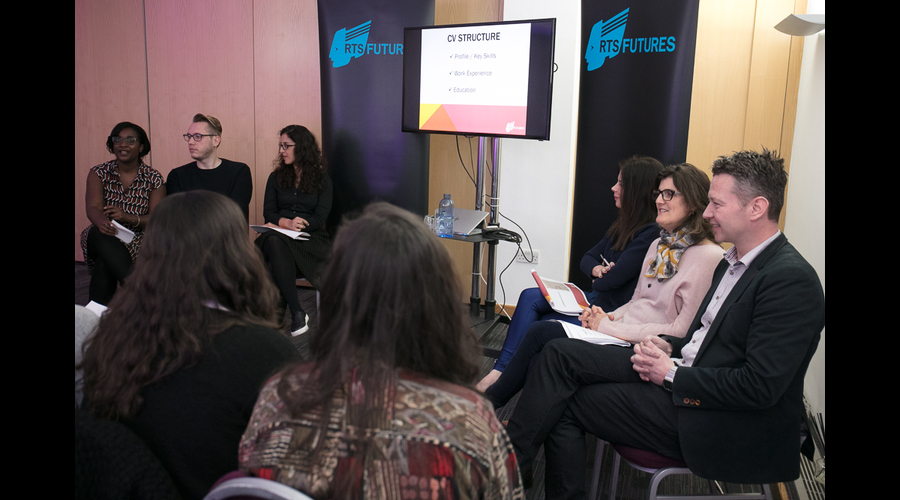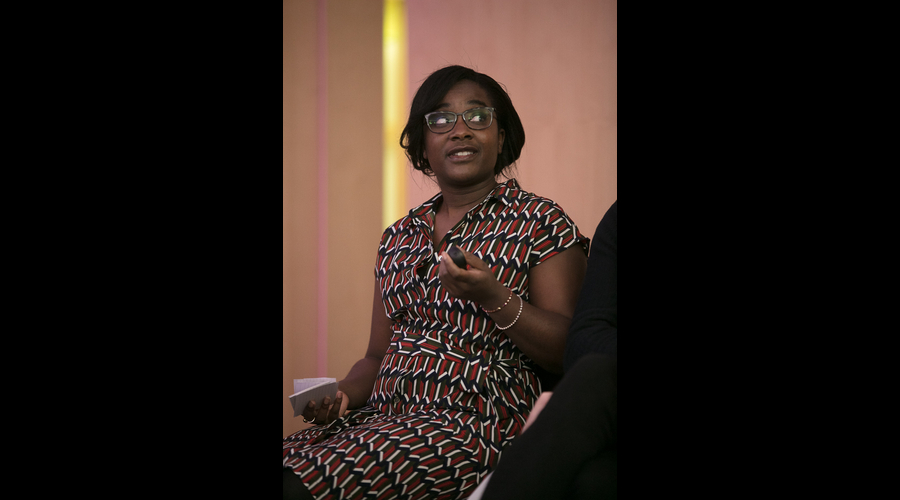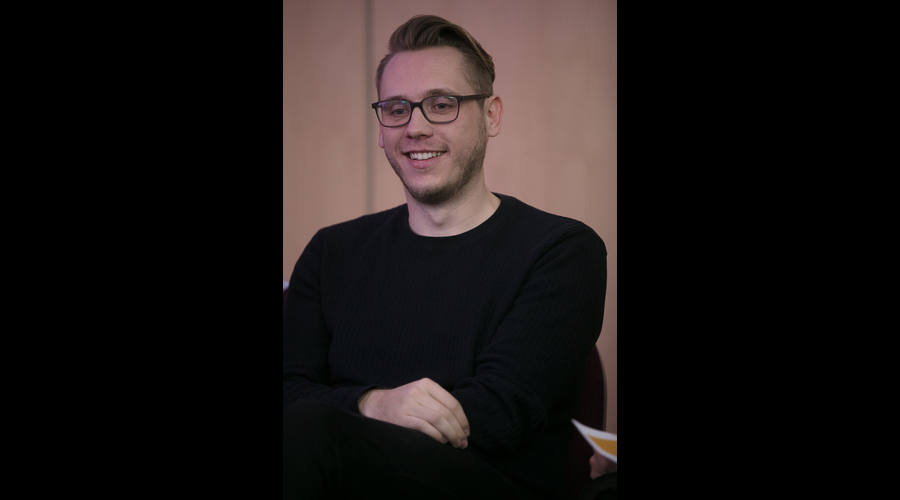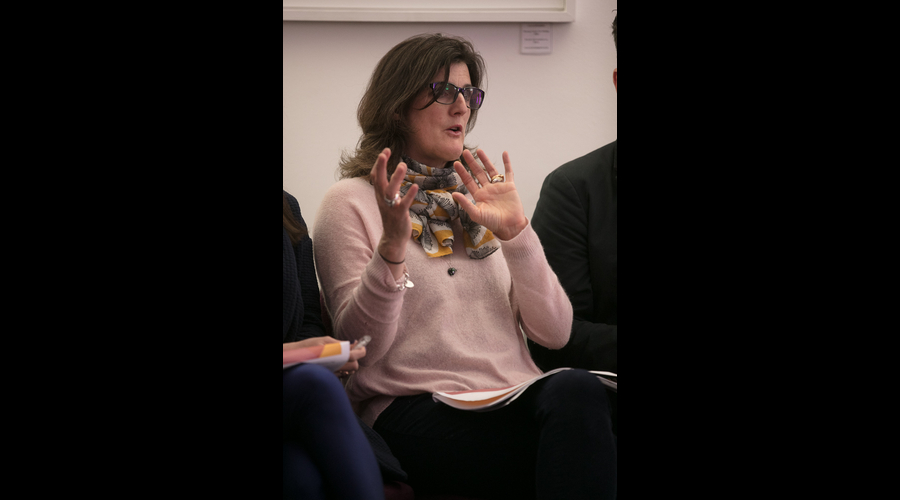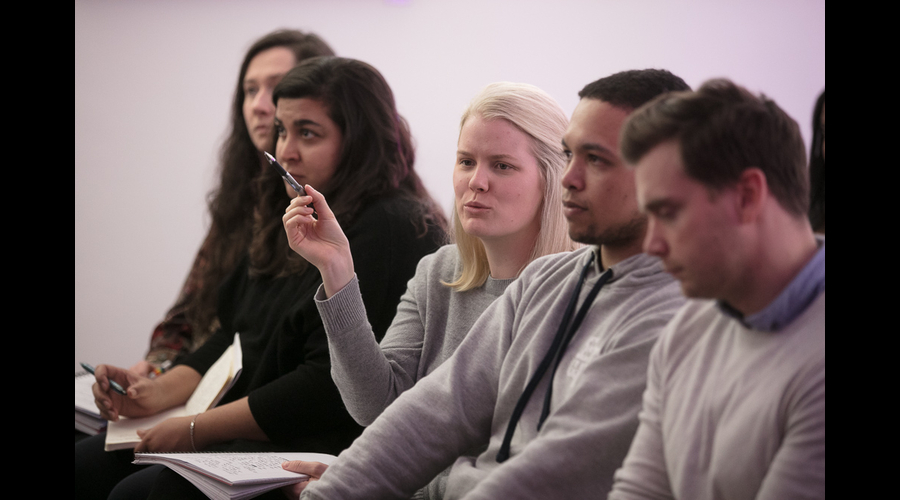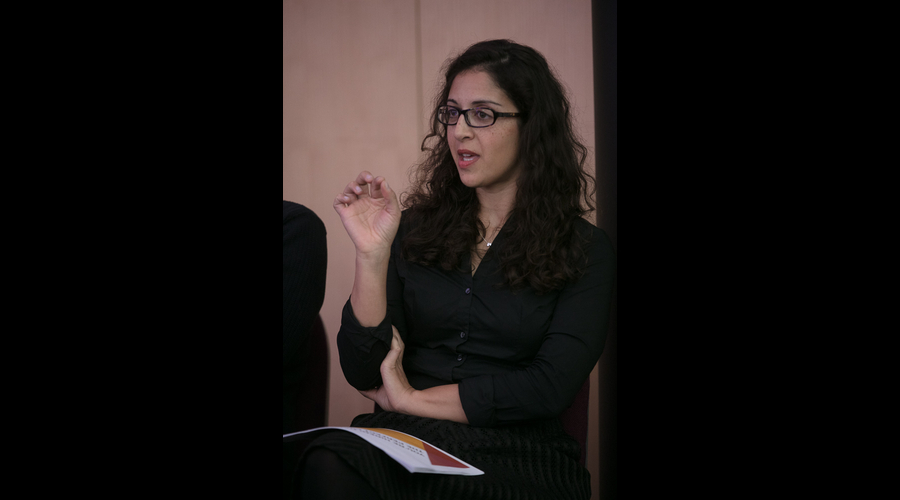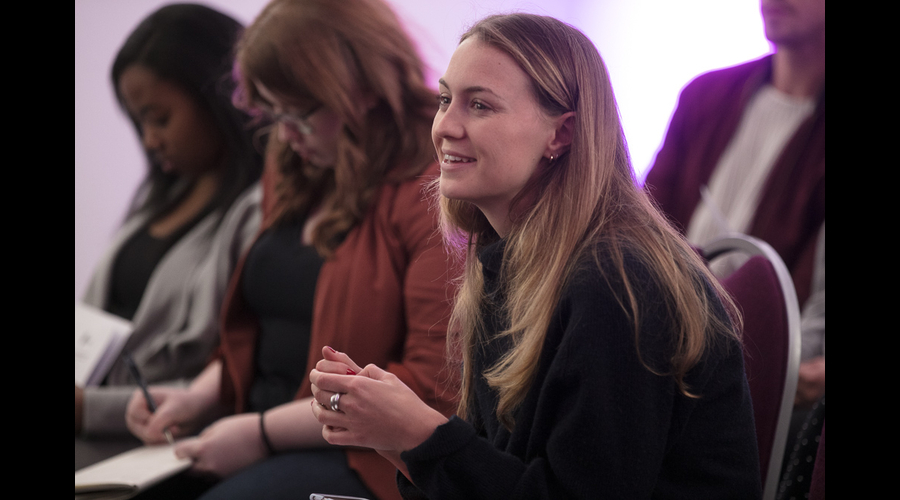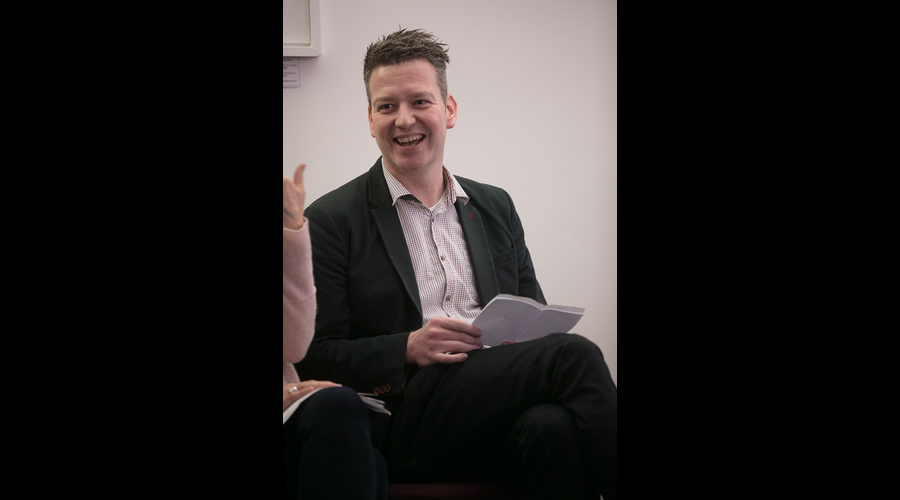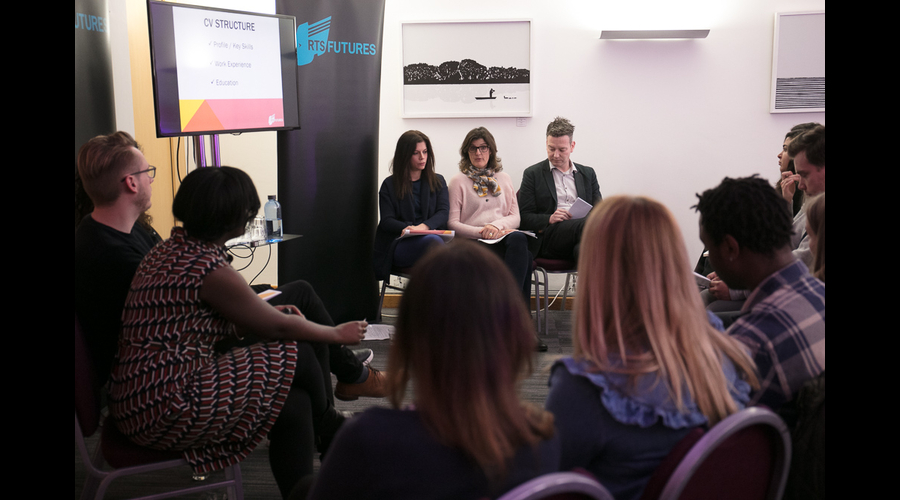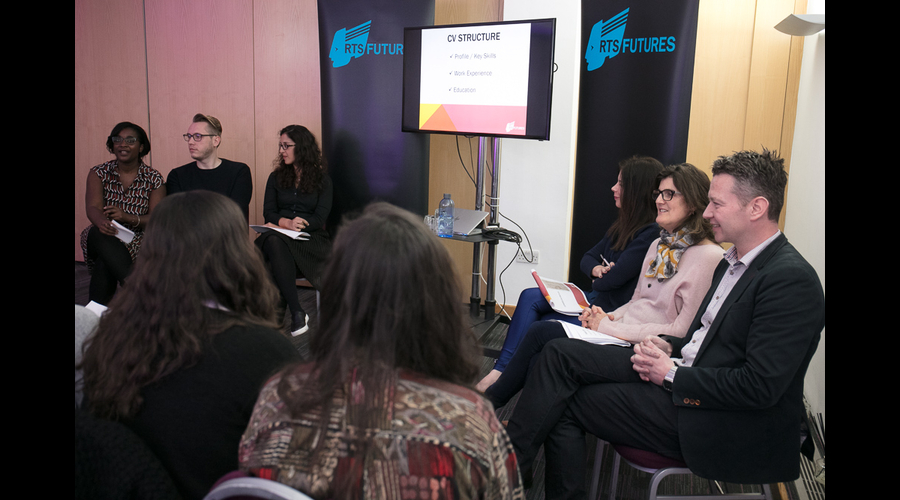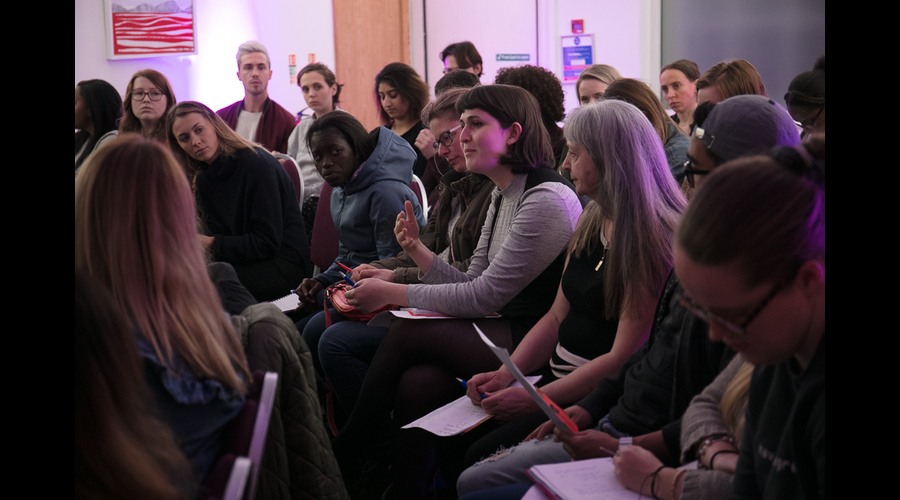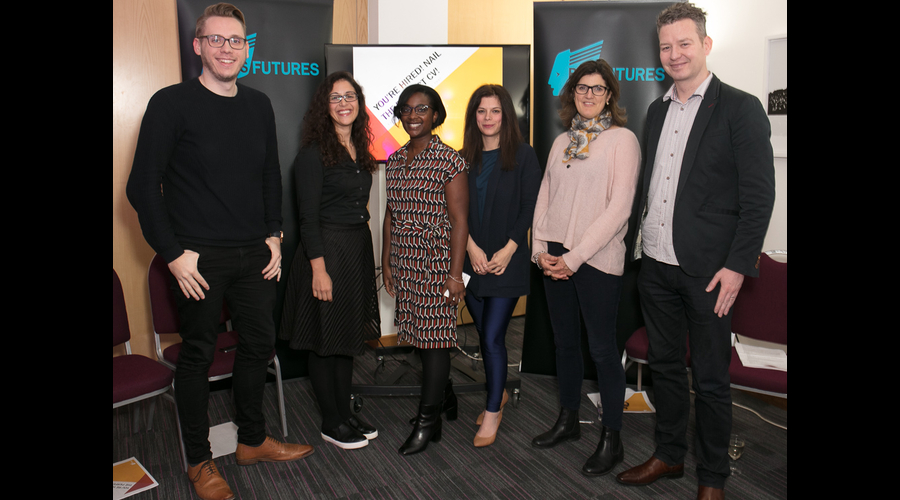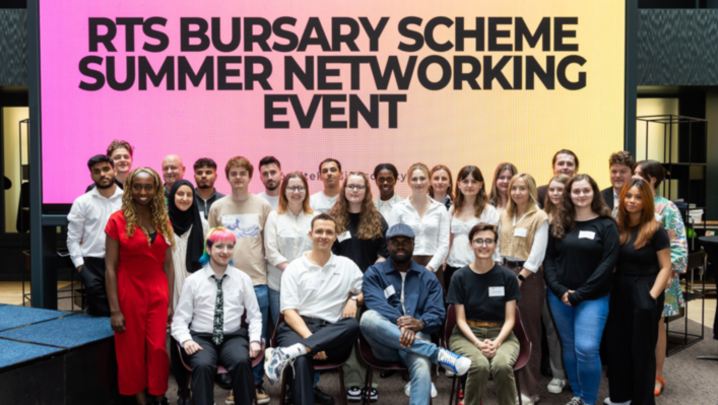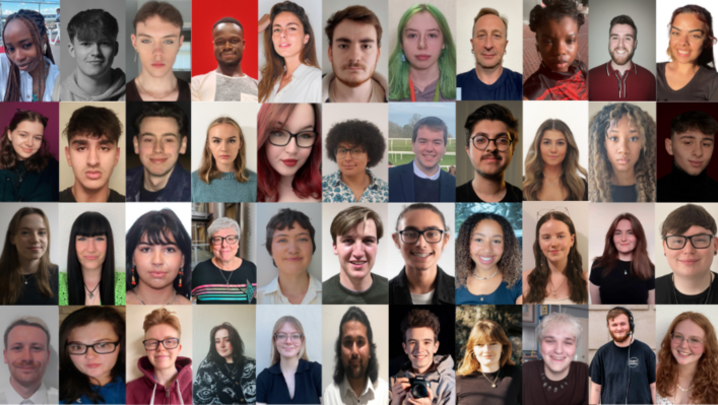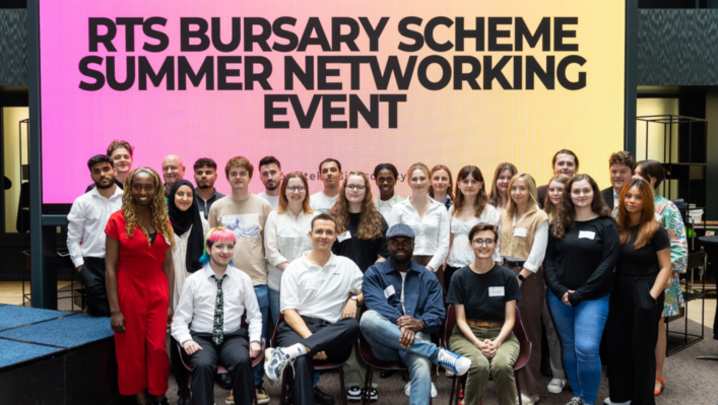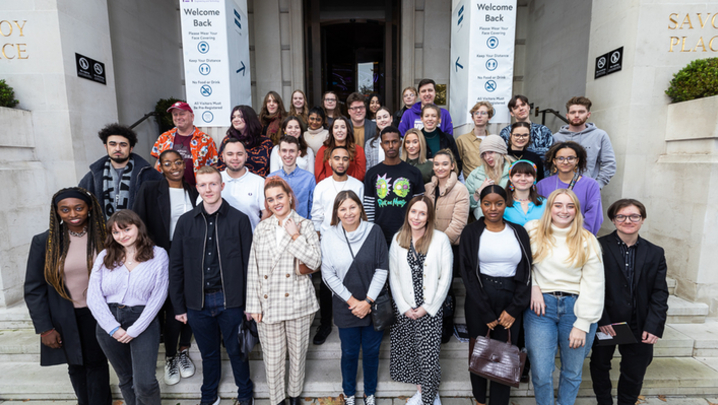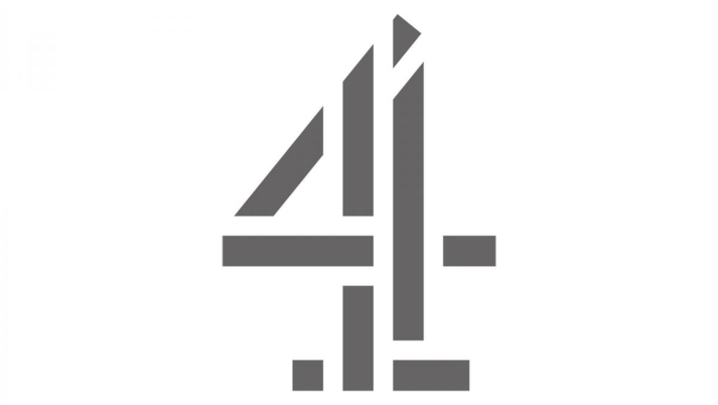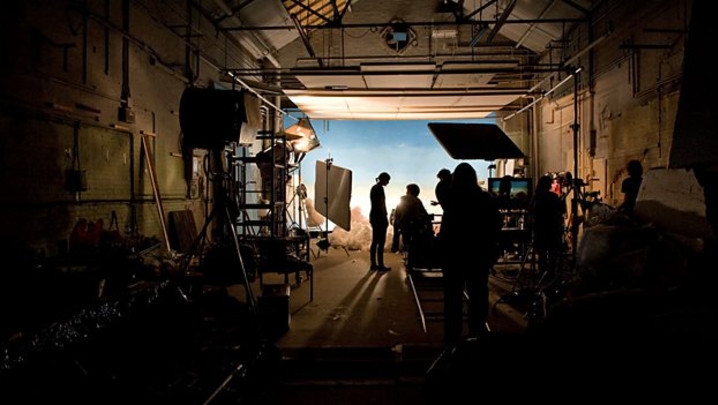Industry experts gathered at for the RTS Futures event 'You're hired! Nail the perfect CV' to offer valuable advice and tips for shaping a CV for people wanting to break into the television industry.
Audrey Cairo, Senior Consultant at Searchlight Recruitment, hosted the session, opening with a question to the panel on structuring a CV, explaining that "people can look at your CV for just a few seconds."
Alex Lawrence, Founder and CCO at Clearhead Digital, said that there are three key areas he looks for on a CV, "what you've done, what you're doing and what you're going to do."
"Factual, accurate and personal," added Sasha Breslau, Head of Acquired Series at ITV.
Name, number and a "professional" email address were mentioned as integral parts of a CV, along with a postal address to give geographical background. Sasha suggested if you are applying for television jobs in London but "you don't live in London, put down that you're willing to relocate" if you are intending to move closer for a role.
Lawrence warned that a person's social presence was a key factor in the recruitment process, "first thing I'll do is Google you and put your name into Facebook, if you don't seem professional, why waste the time of getting you in?"
Amy Osterley, of Searchlight Recruitment, spoke of how she had to revoke a candidate's job offer after she did a social media search of their name and found something inappropriate on their Myspace page.
Paul McGettigan, Head of Comedy Entertainment at 12 Yard Productions, added, "from that first letter of your email to a company, you're being judged."

When the subject of cover letters and how to address your potential employer arose, Lawrence advised, "contextualise [the description of what you've done] into how you can add value to who you're emailing, how you can make an impact that company, that's what's going to make you stand out."
The panel debated the importance of the education section of a CV, with Lawrence stating it as the least important aspect of it for him, where as the other panelists agreed but highlighted the importance to keep the highest level of your education on the CV, even if it is at the bottom, such as a university degree, A levels or GCSEs.
Cairo urged the audience to "tailor your cover letter to the job you're going for," as the other panelists agreed, advising the importance of proof reading each cover letter so as not to leave a previous company from a copy and paste of a previous application in, as Susie Worster, Head of Creative Talent at WBTVPUK, warned "it will be spotted."
McGettigan highlighted the importance of writing the cover letter or a short paragraph in the email you are sending, with the CV as an attachment, as that is the first introduction they will get of the person, "It's the first thing I'll look at and I'll immediately scan it."
"Immediacy is the email, attachment is what we will go back to later, but we're more likely to click on that if you've said something [that makes you stand out]."
The panel also advised a cover letter should be kept short and mention your skillset, as well as showing an interest in the company and should be tailored for each application, but the cover letter should not repeat much of the CV nor be too casual.
Worster discussed the importance of having a profile at the top of your CV, as it is a way of giving information about what you do and where you want to go.
An audience member questioned the predicament of having jobs unrelated to television on your CV such as a part time job or working in a cafe. Both Worster and Osterley stressed that there was "no harm" in listing the in between roles, and in some cases it can secure you the job.

Lawrence highlighted that as long as you can explain how you grew in that role, it is an essential part of you CV if a candidate does not have enough TV experience to add.
He suggested "at the end of each job, "have one line 'and through this I experienced X, Y and Z and that helped me grow' otherwise it will just be a credit list."
Lawrence stressed, "I want to see your journey."
Similarly, Breslau said if you've done many jobs in the same position "find things you can say differently" to add texture and show a wider skillset.
Further advice on the information to add for each job role included the date a person worked there, the company, the role, who the line manager or series producer was during the person's time there, as this can also provide information on where to find references.
The panel were unanimous in that a CV should be two pages in length, with three pages being too many and one page appearing too short.
Cairo highlighted that "the first page being crucial in showing an employer what you've been doing", with the important information upfront, "short and sweet".
The discussion concluded with general dos and donts for structuring a CV: do make your CV clear, tailor it for each job, play to your strengths and use bullet points; as well as warning silly mistakes such as copy and pasting, informality, selfies, and unprofessional emails could cost a person a chance to interview for the job.
The RTS Futures event ‘You're hired! Nail the perfect CV’ was held at the Cavendish Conference Centre in London on 27th April.
All photos by Paul Hampartsoumian



